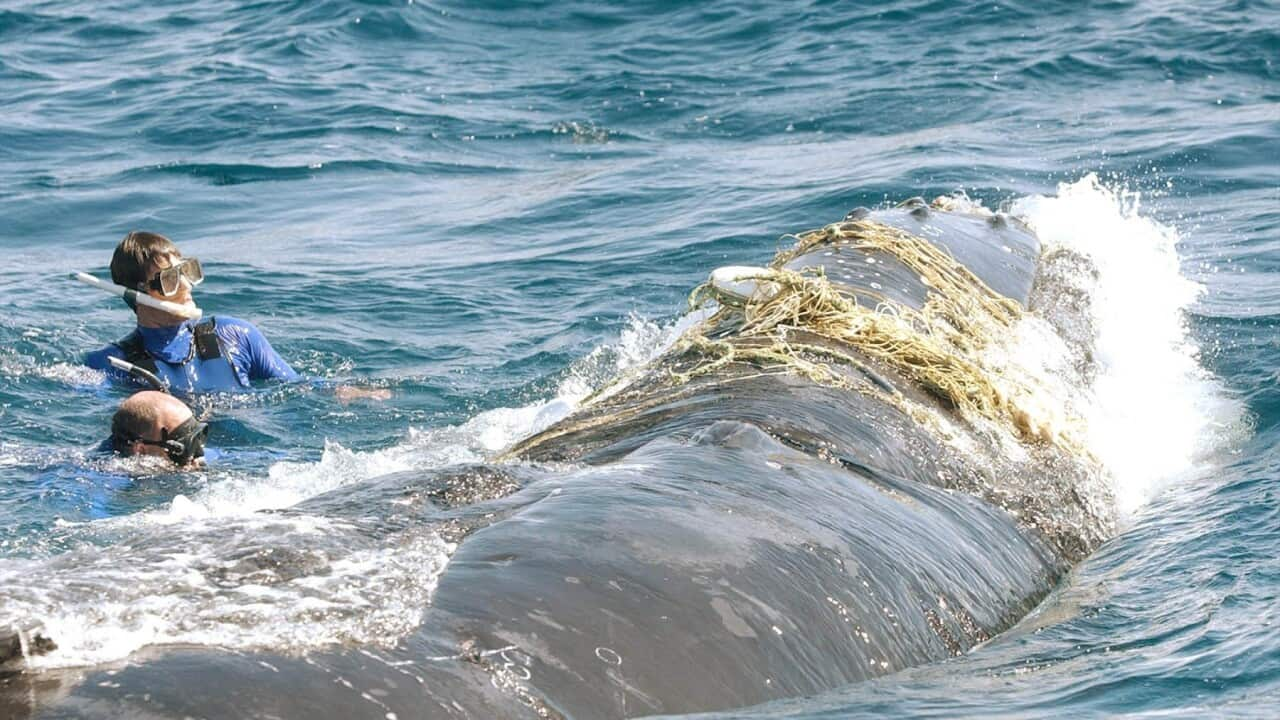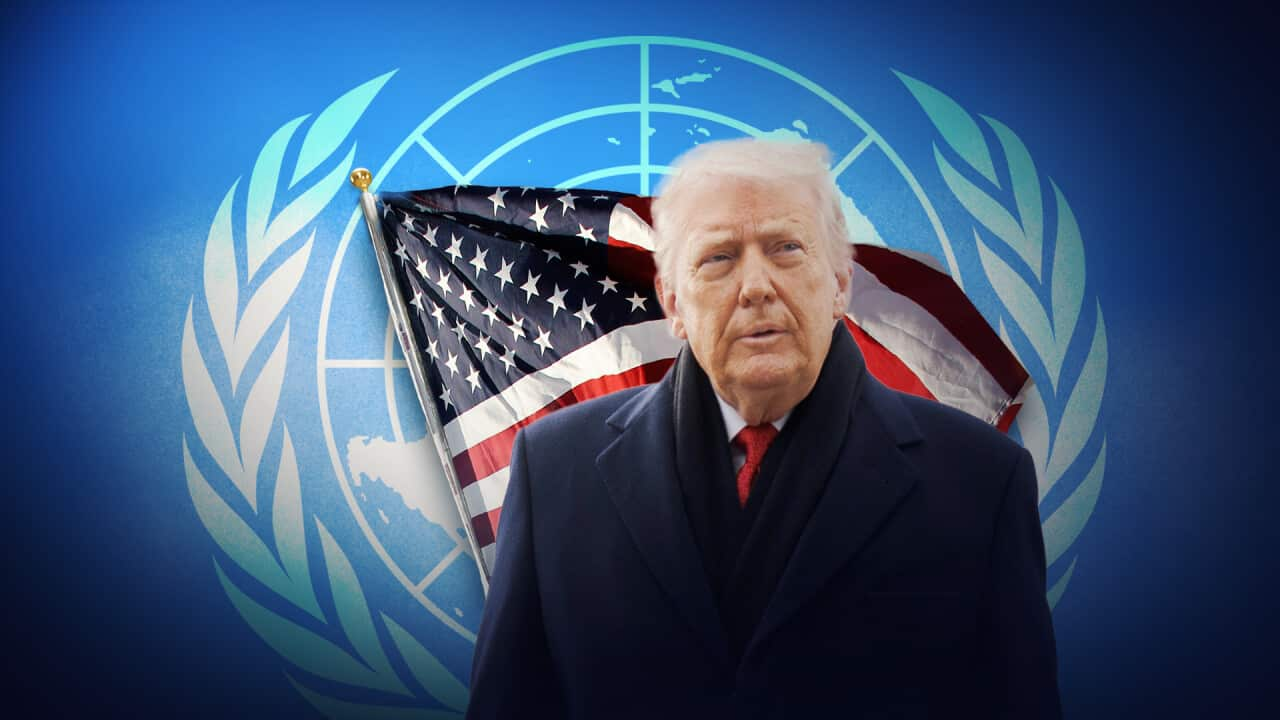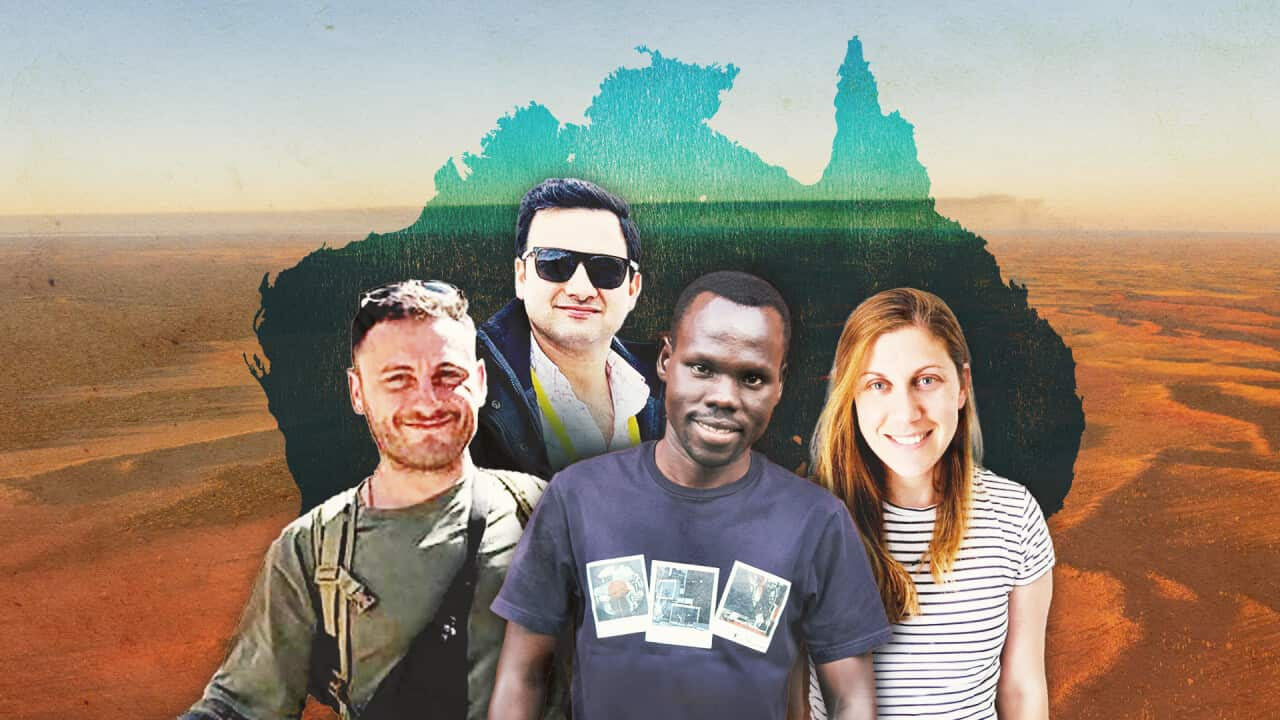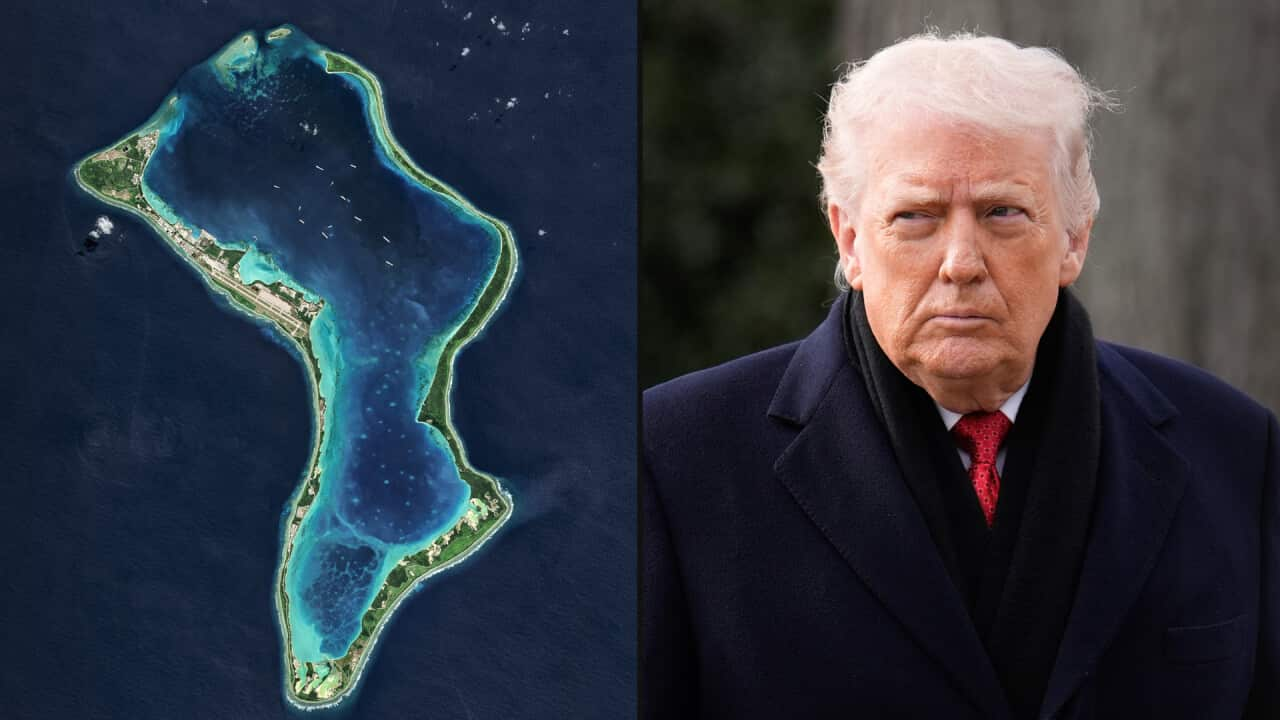Listen to Australian and world news, and follow trending topics with SBS News Podcasts.
TRANSCRIPT
In December last year, a young humpback whale washed up dead on a New South Wales beach.
It had been caught in fishing rope and floats, becoming exhausted as it tried to swim the route of its annual migration along Australia’s east coast.
Despite rescue teams disentangling it, sadly it died days later.
“It was quite obvious to see from the footage that this was an animal that has really starved over a couple of weeks, it was quite thin, and it was also covered in sea lice that usually multiply quite quickly when those whales start to slow down and cannot actually maintain skin health anymore.”
That was Dr Olaf Meynecke, a marine scientist at Griffith University.
He says more needs to be done to prevent whale entanglements.
Over the past five years the New South Wales National Parks and Wildlife Service says it’s received an average of 32 reports of entangled whales per year.
More than 80 per cent of those entanglements involved fishing ropes and floats.
Dr Meynecke again.
“The numbers are likely double of what we are actually encountering. Unfortunately it is very hard for us to know how many in true numbers.”
Commercial fishers like Mitch Sanders want to do something about it.
A trap fisherman working mainly out of Terrigal and Pretty Beach on the New South Wales Central Coast, Mitch has joined a program run by Oceanwatch Australia aiming to reduce whale entanglement risk from fishing gear.
“We don't want entanglements either, we lose our gear, it costs us time and money to get the gear back. So whatever we can do to work along side by side with the whales cause they’re not going anywhere, so we’ve got to make sure that we’re viable and make sure that we do whatever we can to avoid entanglements.]]
Mr Sanders is trialling new technologies like a ropeless attachment for his traps, designed in the US.
Instead of running a rope through the ocean, the device contains rope inside a metal cage, which is only released once the fisher triggers it to unlock electronically so they can retrieve the trap.
However, the devices are expensive and Australian fishers work differently to those in the US.
“It works, it’s very good but it’s very cumbersome and very time consuming and as we run single traps on every rope, over there they’re running up to 40 traps on one rope. So, if it takes a bit longer to get that first one to the surface it’s not so bad, but if we have to do it for every trap it makes it a bit hard.”
He’s also trying out more affordable swaps like floats that are a different shape and negatively buoyant rope.
“We’re trialling different shaped floats that slip off the whale, we use polystyrene floats so if whale is entangled on the side of the fin or something like that we found that the float breaks in half and the whale can swim free.”
Humpback whale populations along Australia's east coast have recovered significantly since whaling was banned, increasing from a few hundred in the 1960s to approximately 40 thousand today.
OceanWatch CEO Lowri Pryce says it means the oceans are extra busy.
“The fishermen are very aware of the number of whales increasing over many many years. We're very much looking at co-existence, we want the whales to migrate safely, having safe passage, but we also want fishers to have safe passage.”
Ms Pryce says as part of the program, Australian fishers are talking with their international counterparts, particularly those in the US and Canada as well as New Zealand.
“We are really trying to hunt down as many ideas as possible and then connect and bring people over so we can adapt. Every operation is very different so having that suite of different gears is really important.”
Fishing regulations vary across Australia but scientists like Dr Olaf Meynecke are calling for a unified approach to prevent whale entanglements.
“There has been some smaller projects to address it but there is no major attempt to actually mitigate the entanglement and the rise of these entanglements.”
It means passionate citizens like Steve Trikoulis have stepped up.
He's the vice president of ORRCA, a non-profit organisation that focuses on rescuing and protecting marine mammals, including whales.
“Generally what happens is you'll see a whale breach or do a blow or anything like that but what we're looking for is like a leading trail behind the whale cause that then gives us an indication that something is entangled.”
Scientists like Dr Meynecke say changes to the fishing industry are important but says fishers will need support, calling for more research into making mitigation technologies more accessible.
“If people would be more aware of the fact that we actually have quite a lot of whales that are entangled in gear and that this is a concern and an ethical concern but also simply an animal welfare concern for us to just make sure that this doesn't really happen in the future.”













